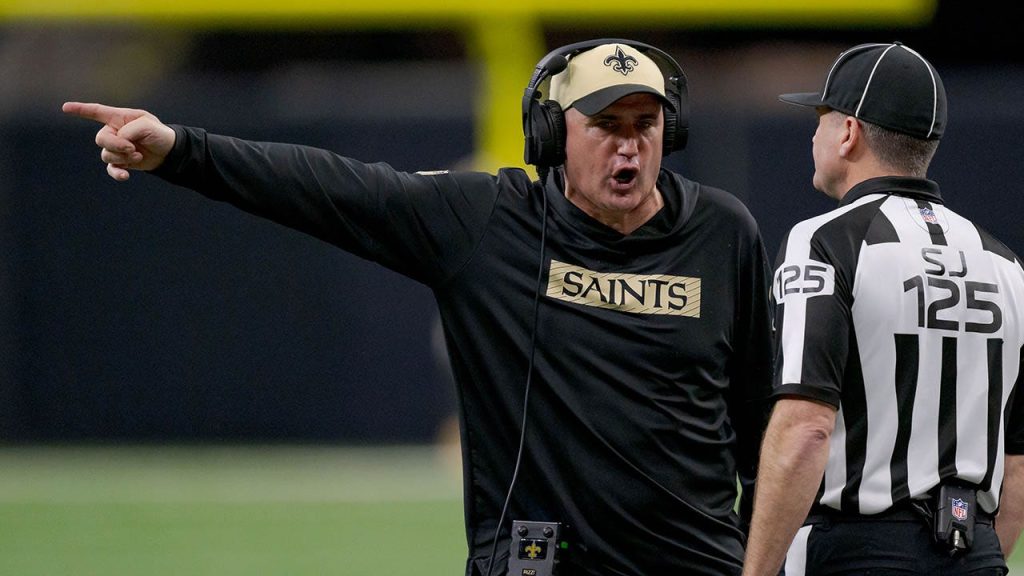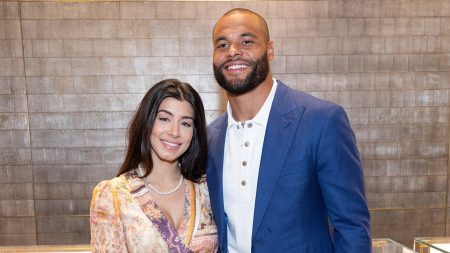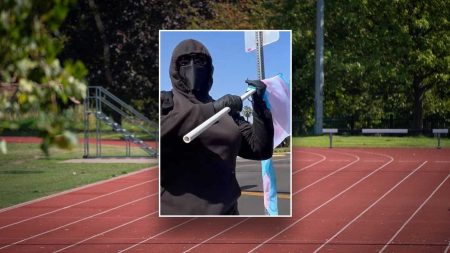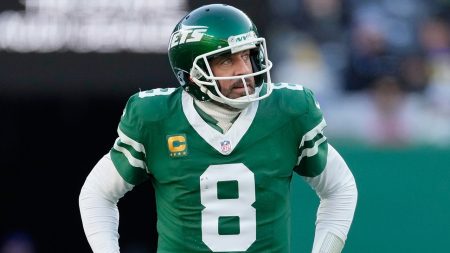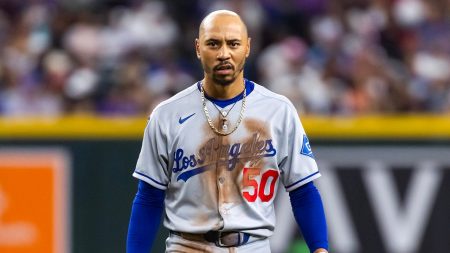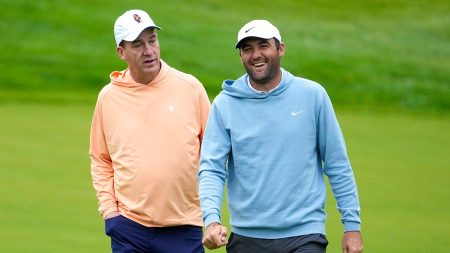The New Orleans Saints’ Week 16 matchup against the New York Giants witnessed a sideline flare-up involving interim head coach Darren Rizzi and punter Matthew Hayball. The incident stemmed from a second-quarter punt return by Giants’ Ihmir Smith-Marsette, which initially appeared to be a touchdown. Smith-Marsette expertly weaved through the Saints’ coverage unit, electrifying the Giants’ sideline and seemingly putting them in the lead. However, the jubilation was short-lived as a flag was thrown for holding against the Giants, negating the touchdown and forcing the team to restart their drive. While the penalty spared the Saints from surrendering points, it ignited a different kind of fire on their own sideline.
Rizzi, known for his passionate coaching style and his background as a special teams coordinator, was visibly enraged with Hayball. The 43-yard punt, while not disastrous, apparently failed to meet Rizzi’s expectations. The coach’s frustration boiled over into a heated confrontation, with Rizzi appearing to berate Hayball for his execution of the punt. Running back Alvin Kamara, recognizing the escalating tension, stepped between the coach and punter, acting as a mediator and preventing the situation from further deteriorating. The intervention of Kamara, a respected veteran and team leader, helped to diffuse the tension and redirect the focus back to the game.
The outburst underscored the significance Rizzi places on special teams play. Having served as the Saints’ special teams coordinator since 2019, and later as associate head coach, Rizzi has consistently emphasized the importance of this often-overlooked phase of the game. His meticulous approach to special teams is a reflection of his belief that even seemingly minor plays can have a significant impact on the outcome of a game. In this instance, while the penalty ultimately nullified the return, Rizzi’s reaction suggests a concern that Hayball’s punt had presented an unnecessary risk, placing undue pressure on the coverage unit.
Rizzi’s passionate approach to coaching extends beyond special teams. His temporary ascension to the role of interim head coach following the dismissal of Dennis Allen further highlights his dedication and commitment to the Saints’ organization. Taking the reins mid-season presents unique challenges, requiring a coach to quickly adapt and establish his leadership within the team. Rizzi has embraced this challenge, demonstrating a proactive and assertive coaching style evident in his interactions with players. The incident with Hayball, while dramatic, showcases the intensity he brings to his role, demanding high standards from every player regardless of their position.
The incident also provides a glimpse into the dynamics of an NFL sideline, a high-pressure environment where emotions run high. Coaches are tasked with making split-second decisions and motivating their players to perform at their best. While Rizzi’s public display of anger may have been unconventional, it underscores the demanding nature of professional football and the intense pressure faced by both players and coaches. The intervention by Kamara demonstrates the importance of player leadership in maintaining team unity and composure during challenging moments.
Under Rizzi’s interim leadership, the Saints have shown resilience, posting a 2-1 record prior to the Giants game. This success speaks to his ability to motivate and guide the team despite the mid-season transition. The incident with Hayball serves as a reminder of the high stakes involved in every NFL game and the unwavering focus required to succeed at the professional level. While Rizzi’s approach may not always be conventional, his passion and commitment to the team are undeniable, and his focus on special teams reflects his understanding of the crucial role they play in a team’s overall success. The incident, while momentarily distracting, ultimately underscored the intensity and dedication Rizzi brings to his role, further solidifying his reputation as a demanding and results-oriented coach.




